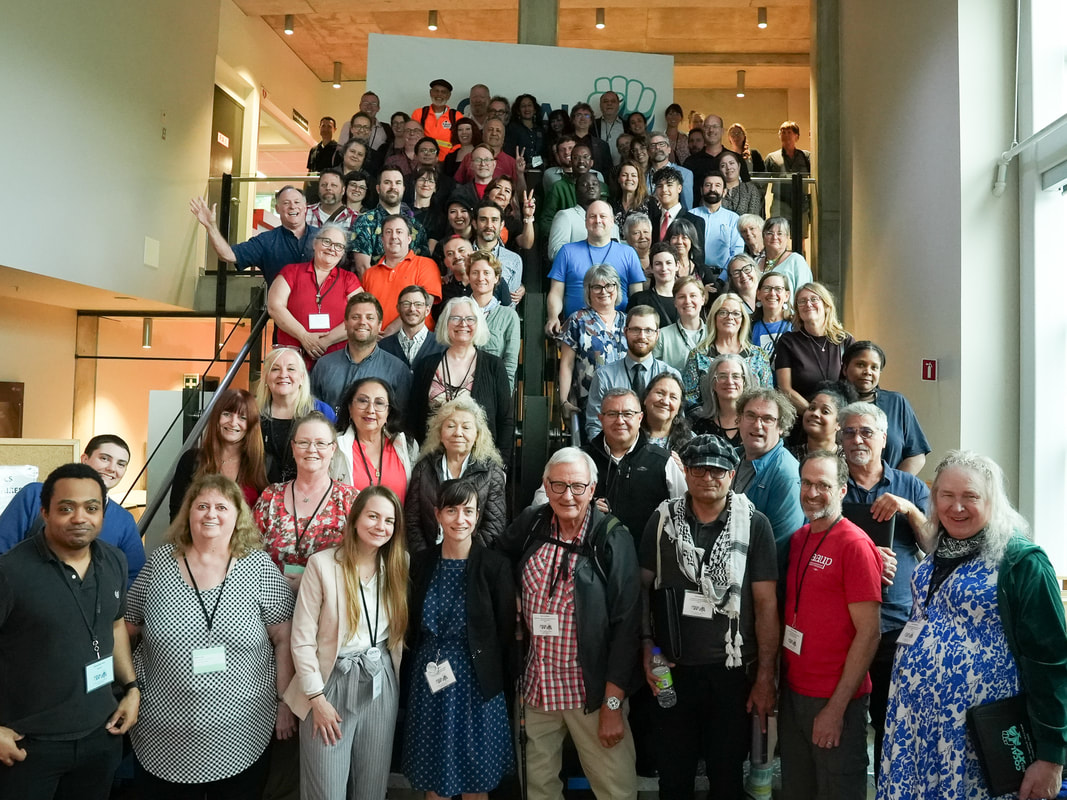Promoting dialogue for a more inclusive academic environment
In August 2024, the Québec Association for Equity and Inclusion in Postsecondary Education (AQEIPS) was warmly invited to participate in the Coalition of Contingent Academic Labor (COCAL), a major event bringing together activists from Canada, the United States and Mexico.
Held in Gatineau, this congress highlighted the issues of precariousness linked to contractual academic staff and allowed activist organizations to discuss means of action and demands in the context of higher education.
This year, AQEIPS played a role by sharing its expertise on the specific challenges encountered by students with disabilities and professors/adjunct professor. This was a unique opportunity for the association to educate and broaden the debate on inclusion issues by also sharing the experiences of university and college professionals in relation to these challenges. All this, leading to a discussion on best practices, with the goal of integrating these perspectives in an upcoming research project. Over the last two years, the AQEIPS team has noticed and increase in the number of requests from our members in requests for direct intervention with academic establishments and financial aid organizations. These interventions emanate from systemic issues in terms of equity and inclusion. Professors and lecturers are also at the forefront of these issues which adds to their work experience, already affected greatly by the precariousness of their job.
Some thoughts
The COCAL XV was built around two major current themes, equally impacting the reality of students with disabilities ;
- Enrich rather than fragment the work of university contractual staff : analysis and solutions
In the context of focusing on budgetary aspects, decisions which favor the “reduced” cost of lecturers, failing to promote the stability and quality of teaching in our post-secondary establishments, can have a significant impact on the academic experience. A learning experience less adapted to specific needs in the context of a disability situation thus reduces the effectiveness of support measures resulting from so-called “inclusive” institutional policies. An inclusive academic environment conducive to learning must notably be initiated by adequate working conditions for staff. The same goes for support measures, with accommodations that should be reasonable for both the student and the teacher.
- Commodification in the context of artificial intelligence (AI) and distance education
The devaluation of human teaching and the human skills of professionals in favor of AI seems to be linked to the replacement of tutoring and adaptive software by artificial intelligence. It is necessary to ensure that AI technologies are integrated in a way that complements, and does not replace, tools and supports for students with disabilities.
At the congress, the AQEIPS intervention focused on a complementary, but crucial, aspect of these debates; equity and inclusion. The association shed new light on why and how working and study conditions need to be improved, starting with a dialogue between the various organizations.
We warmly thank the COCAL and its organizers for reaching out to us to participate in an event full of reflection and collaboration. These exchanges are essential to move towards effective and concrete solutions in order to improve the inclusiveness of the academic environment.
The AQEIPS Team

